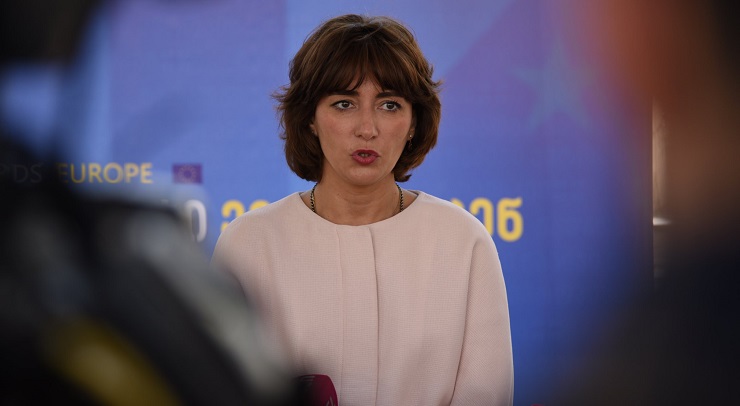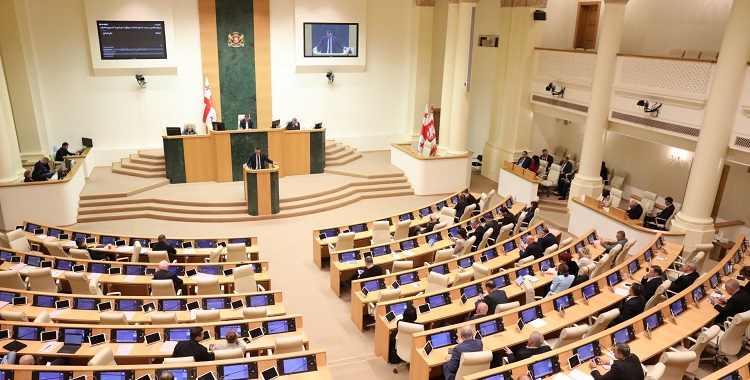Transparency International watchdog urges ruling party to amend anti-corruption bill

The Georgian office of the Transparency International on Tuesday offered the ruling party to use a bill on an anti-corruption bureau previously drafted with its involvement. Photo: TI Georgia.
The Georgian office of the Transparency International anti-corruption watchdog on Tuesday called on the ruling Georgian Dream party to amend its recently proposed bill on establishing the national anti-corruption bureau, saying the document “does not correspond” to the European Union’s conditions for granting the country the membership candidate status.
Citing the fourth condition of the EU requiring domestic authorities to “strengthen the independence of the anti-corruption agency, which will handle all key anti-corruption functions”, the organisation claimed the bill did not ensure the merger of various “key anti-corruption tasks” in a single body and failed to provide guarantees for its independence and effective work against corruption.
The organisation said the adoption of the bill, which allows the country’s prime minister to appoint the head of the bureau, in its current form could leave the country without the desired status as the EU was unlikely to accept it.
Instead, TI has proposed the ruling party use a bill drafted with its involvement in 2020, which proposed election of the head of the agency through votes by two thirds of MPs, as well as granting an investigative function to the bureau.
 The ruling party proposed the bill in late October. Photo: parliament press office.
The ruling party proposed the bill in late October. Photo: parliament press office.
The latter bill, which the organisation said had been approved both by political groups and the civil sector, also prescribed the new anti-corruption bureau unifying all existing anti-corruption institutions - the state security service anti-corruption agency, the department of financial monitoring of political parties of the state audit service, and the public service bureau’s asset declaration monitoring department.
The bill initiated by the ruling party last month said the new agency would be expected to promote combating corruption, supervise the implementation of the government's general policy and national strategy against it, as well as coordinate activities of relevant bodies, organisations and officials.
A shortlist for the head of the bureau would be selected via an open competition, following “transparent procedures” by a competitive commission composed of representatives of state agencies and domestic non-governmental organisations, with the prime minister choosing one candidate from proposed nominees for the position.
 Tweet
Tweet  Share
Share